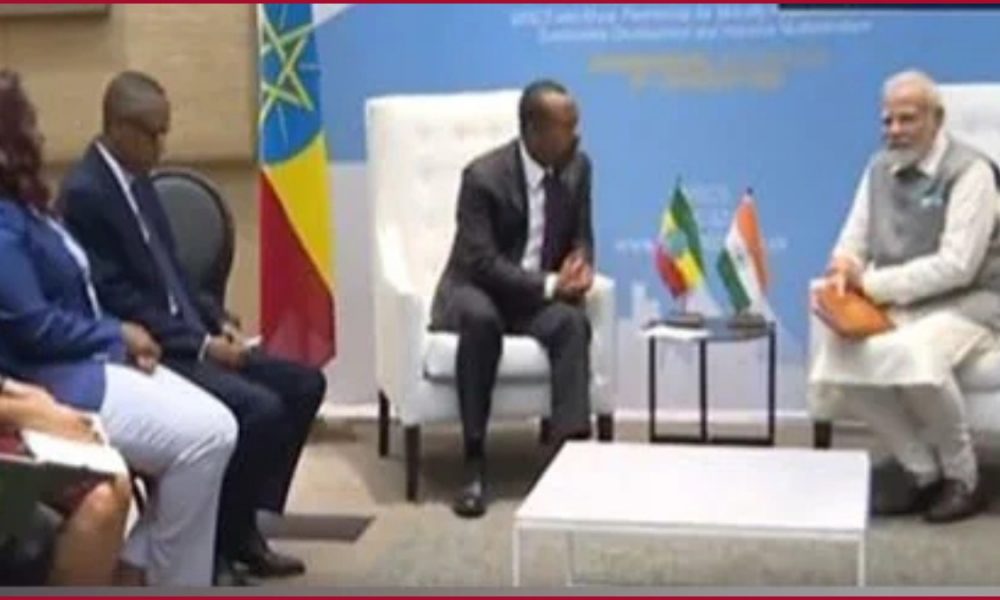
Johannesburg: Prime Minister Narendra Modi held a bilateral meeting with the Ethiopian Premier Abiy Ahmed Ali in South Africa’s Johannesburg on the sidelines of the BRICS Summit on Thursday.
Both the leaders were seen exchanging a handshake and having a brief conversation with each other.
The meeting was held in the presence of envoys from both countries. The meeting was conducted after PM Modi supported the name of Ethiopia for its inclusion in the BRICS grouping.
PM Modi holds bilateral meeting with Ethiopian PM Abiy Ahmed in South Africa
Read @ANI Story | https://t.co/dwQhyHF5IC#PMModi #AbiyAhmed #Ethiopia #BRICSSummit pic.twitter.com/1LA6LDQsar
— ANI Digital (@ani_digital) August 24, 2023
At the Summit on Thursday, it was announced that Argentina, Egypt, Ethiopia, Iran, Saudi Arabia and the United Arab Emirates will join the BRICS in January 2024.
In a statement in the presence of other leaders from BRICS countries, PM Modi said India has always believed that adding new members will strengthen BRICS as an organization.
India and Ethiopia have very friendly relations for many decades. Last year, India and Ethiopia held the fourth foreign office consultations in Addis Ababa, Ethiopia where delegations from both sides reviewed bilateral relations and exchanged views on issues of mutual interest.
#WATCH | Johannesburg, South Africa | Leaders of BRICS nations and friendly nations gather for a family photo. pic.twitter.com/9saI4dQwXc
— ANI (@ANI) August 24, 2023
The foreign office consultations were co-chaired by Puneet R Kundal, Joint Secretary (East and Southern Africa), Ministry of External Affairs, India and Ambassador Dr Gebeyehu Ganga Gayito (Ph.D) Director General for Middle East, Asia & Pacific Countries Affairs, Ministry of Foreign Affairs, Ethiopia, a MEA press release said.
In last year’s meeting, Both delegations reviewed the entire spectrum of bilateral relations during the Foreign Office Consultations. Issues discussed included political engagements, trade & economic matters, development partnership projects, cultural and consular matters, cooperation in higher education, people-to-people contacts, etc.




